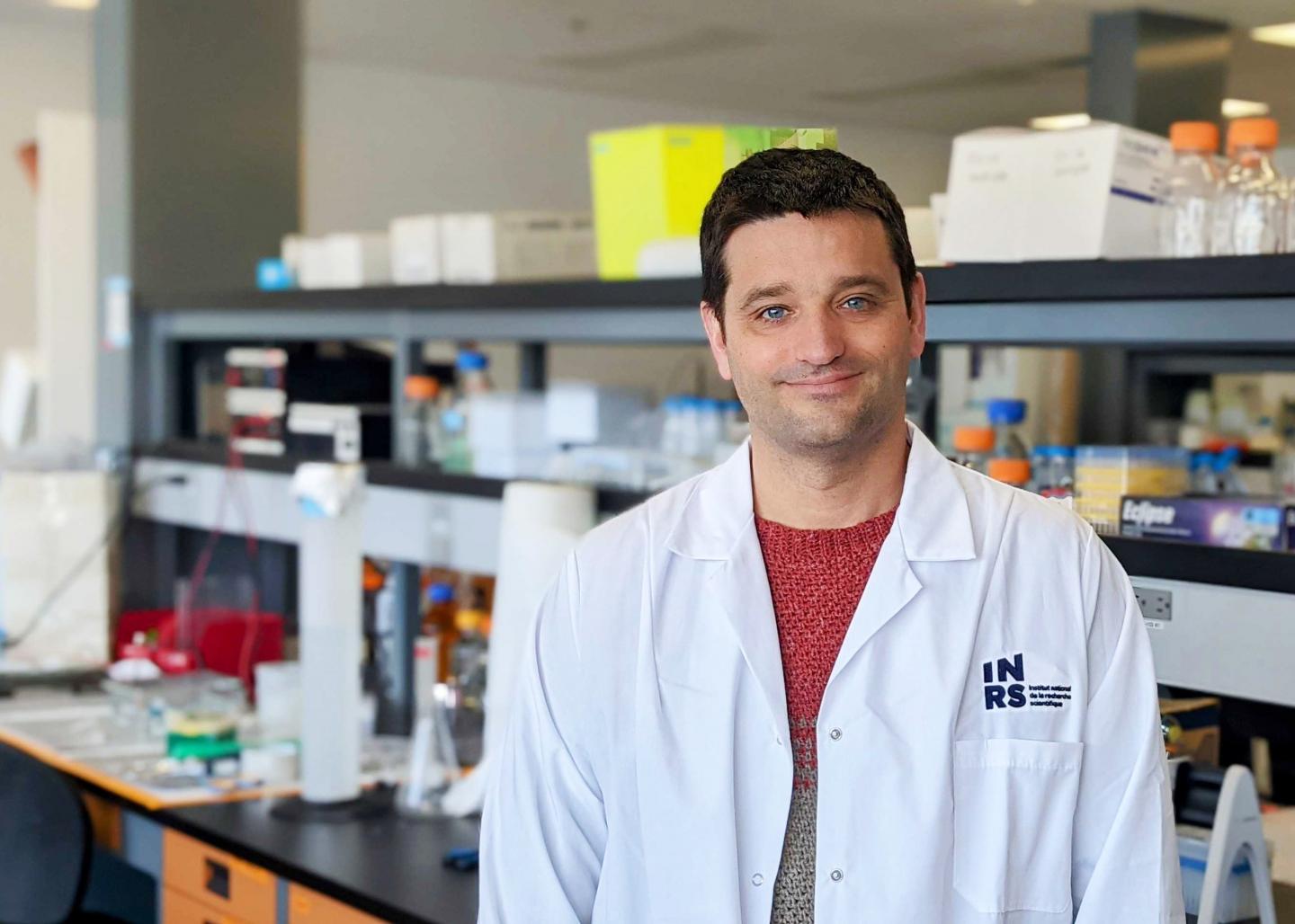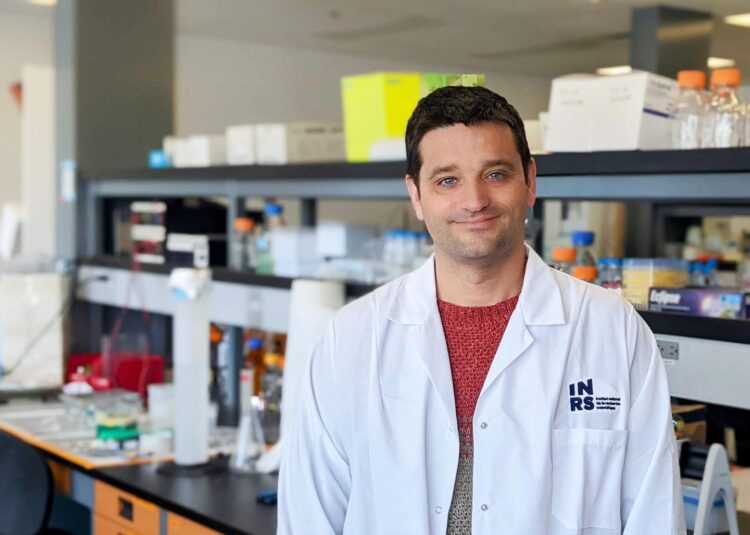
Credit: Simon Desbiens
The Institut national de la recherche scientifique (INRS) inaugurates today its new Level 3 laboratory (CL3), which propels research on numerous pathogens. CL3 will enable research teams to handle pathogens of concern to public health in Quebec and around the world, such as SARS-CoV-2, West Nile virus and the bacteria that cause tuberculosis, in safe conditions. This leading-edge laboratory, located at the Armand-Frappier Santé Biotechnologie Research Centre of INRS, is directed by Professor Laurent Chatel-Chaix. It will allow in vitro research on several high-risk pathogens under infectious conditions close to those of the diseases they cause.
A promising infrastructure
With an INRS investment of nearly $300,000, the laboratory will allow INRS to continue to stand out as a leader in health research, in addition to fostering collaboration with academic and private partners. “The past year has demonstrated the importance of research to ensure the well-being of societies and populations. To meet today’s public health challenges, it is essential to provide our research teams with the best scientific facilities so that they can evolve in an environment conducive to the development of knowledge,” said INRS Chief Executive Officer Luc-Alain Giraldeau.
“This leading-edge research environment will foster interdisciplinary and collaborative research, sharing of knowledge and tools, creativity and know-how. In addition, it will contribute in the training of the next generation of high-level health researchers,” added INRS Director of Research Pascale Champagne. “In the very short term, INRS researchers will be able to begin their work in these facilities. There are, among others, two projects funded by the internal financial support program for research on COVID-19 that require a level 3 laboratory”.
Professors Alain Lamarre and Steven Laplante with their “Combined SARS-CoV-2 treatments” project, will test the therapeutic efficacy of a bank of molecules, already safe for the human body and accepted by the Food and Drug Administration (FDA) in the United States. In addition, Professors Géraldine Delbès and Laurence Charton also have a project underway as part of this program launched in January 2021. The project ” Perinatal and transition to parenthood during COVID-19 – from the social level to the molecular level” will focus on the impact of CoV-2 SARS on placental functions. Professor Chatel-Chaix will participate in the work of these two research teams, among others, in the CL3 laboratory.
“Access to a level 3 laboratory, accredited by the Public Health Agency of Canada, is a way to remain leaders in fields such as virology or immunology,” adds Claude Guertin, Director of the AFSB Centre. ‘Above all, this certification will allow us to complete research cycles by pushing them to the next stage, i.e. in vitro research. We will thus be able to collaborate with external partners, providing them with the safe facilities they need to develop new drugs or vaccines”.
CL3 also allows for an increase in the spectrum of pathogen types that the various INRS teams will be able to study.
The CL3 with controlled access
Containment level 3 (CL3) allows the handling of risk group 3 agents, i.e. pathogens, including those transmissible through air. Although they generally have a low infectious dose, it is sufficient to cause serious or even fatal disease. “The laboratory received its CL3 accreditation in February of this year. The accreditation requires that the facility meets design standards and a number of stringent measures, including inward-flow airflow only, high-efficiency filters to treat the discharged air, and other stringent requirements,” Mr. Guertin adds.
“Pathogens that will be studied generally cause serious human illness or with serious consequences for public health and the economy,” warns Professor Chatel-Chaix. “Right now, we’re talking a lot about SARS-CoV-2, for obvious reasons. But while the scientific exploits of COVID-19 illustrate all the human genius in a syringe, the discovery of vaccines against COVID-19 is part of an upstream research process that began in academia many years ago. What we will do as CL3 research may therefore be a precursor to new discoveries for West Nile virus, tuberculosis or any other emerging or resurgent pathogens in the future”.
###
Media Contact
Sophie Laberge
[email protected]





